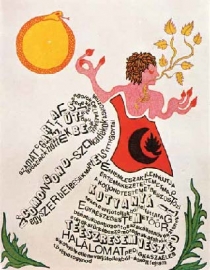| excerpted from the Times: |
THE OPINION PAGES | EDITORIALScapegoating the Roma, AgainBy THE EDITORIAL BOARD OCT. 17, 2013 The Roma, sometimes called Gypsies, have been part of the European cultural landscape for centuries. They have also suffered greatly from discrimination and prejudice, particularly in times of economic crisis, when they become scapegoats. That is happening now. Faced with stubbornly high unemployment and strained budgets, some European Union members are finding it easier to stigmatize and expel Roma than to provide them with the education, housing and employment they seek. In London, a Roma camp was dismantled over the summer and most of its residents sent back to Romania. In the Czech Republic, Roma children are still routinely segregated in schools. In Sweden, revelations that the police kept a secret registry of Roma families touched off a national storm. …Continue reading the full Times editorial and come join the conversation with the Narrating Change Seminar @The Graduate Center |
Tag Archives: Roma
Narrating Reform: Roma Educators Narrate Social Inclusion in Europe
Oct 22, 2013, 6:30pm
The Skylight Room (9100)
Tünde Kovacs-Cerovic, Jordan Naidoo, Colette Daiute
And
Discussion of the Report: “Roma Educators Narrate Reform”
@The Graduate Center, October 23, 2:00 – 4:00
Please write to cdaiute@gc.cuny.edu for the report and the room number.

repost from The Center for the Humanities:
“Social inclusion” is a promise and issue of heated negotiation across Europe, where dramatically changing populations are the result of economic migration, displacement by war and revolution, poverty, and other exclusions. Eleven million Roma in diverse communities are living in marginalized conditions that are central to policies and politics of social inclusion. The Decade of Roma Inclusion, 2005-2015, declared by 13 countries across Eastern Europe to provide an agenda and resources has prompted an education reform (among reforms in health and housing). The Pedagogical Assistant Program in Serbia is a dynamic effort revolving around self-determination by Roma through professional participation in education. Join us for a presentation and discussion of goals, activities, and tensions in this education reform, with examples from research highlighting perspectives of the Roma teaching assistants.



Cosponsored by the Narrating Change Seminar in the Humanities.

